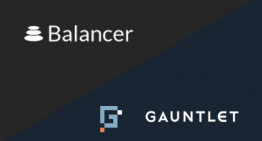The next generation of online architecture is here, and it’s driving change across nearly every industry – including healthcare. In many ways, Web 3.0 represents a return to the original intent of our online experience. That is, to provide an environment where “no permission is needed from a central authority to post anything”. Today, distributed ledger technology (DLT) has finally enabled the decentralization of data over transparent, secure networks.
However, not all distributed platforms are suitable for every use case. When it comes to the medical and healthcare industries, privacy is crucial. Despite the rapid evolution of distributed networks, the unique requirements of health-centric solutions pose significant challenges – that’s where Radiologex (or RDEE for short) comes in.
Radiologex in the Healthcare Industry
According to TechSci Research, the global “blockchain in healthcare” market is forecast to grow at a compounded annual growth rate (CAGR) of 70% from 2020 – 2027. In part, this growth is a response to escalating healthcare record data breaches and the surging adoption of blockchain technology in the healthcare and pharma industries. And with global healthcare spending set to reach $10.059 trillion by 2022, it’s clear that new solutions are necessary to support industry growth.
So, how does Radiologex improve on centralized solutions? Most notably, it’s the first global Web 3.0 solution for the medical and healthcare industry. Although other blockchain-built initiatives have come before it, the global reach of the Radiologex platform far exceeds previous solutions. In operating as a multi-faceted medical resource, the RDEE platform furnishes solutions and services for:
- medical device and equipment sale (global Marketplace);
- medical device and equipment service (P2P/B2B Service-On-Demand);
- unlimited medical imaging and other file storage and transmission (PACS);
- content delivery network (CDN);
- dedicated wide-ranging communications network (Messenger);
- clinical information systems (CIS/RIS);
- entire payment settlement (RDEE Pay); and
- financial and administrative data.
By bringing this functionality together under one application, Radiologex provides healthcare professionals with a simple, intuitive approach to managing all aspects of patient care.
Managing Healthcare on a Decentralized Network
For some, distributed networks represent the next generation of healthcare delivery. For others, the benefits of building a healthcare platform on decentralized architecture are less clear – although there are many.
Transaction Costs
The cost of sending and receiving funds over a blockchain network is marginal in comparison to those incurred over conventional banking channels. Instead of paying 3% on every transaction and then waiting days for the funds to clear, transactions on decentralized networks execute for pennies on the dollar and settle almost instantly.
Data Distribution and Sharing
DLT enables real-time updates across the entire network. This dynamic enables greater collaboration and, ultimately, better patient care.
Digital Identities
Distributed technology supports the creation of digital identities using cryptography. These identities create a singular, secure patient profile that is easier to access on your unique network.
Smart Contracts
Smart contracts enable automation on the blockchain – minimizing the administrative burden on healthcare providers. In an industry with deep data coffers, these self-executing agreements streamline the flow of data and ensure compliance.
Collaboration Across the RDEE Ecosystem
Healthcare collaboration is hard – but it doesn’t need to be. The RDEE platform breaks down barriers and enables interoperability between healthcare authorities around the world. Because the RDEE platform offers extensive security and privacy functions, the possibilities are virtually endless.
For example, the RDEE Messenger uses dual-encryption to protect sensitive data regularly handled by medical professionals. Together with the RDEE Content Delivery Network, Radiologex services extend a cryptographically secure channel to both patients and doctors. This functionality constitutes a significant improvement over legacy methods of patient record protection and costly cloud storage alternatives. Also, these blockchain implementations make HIPAA compliance a technical certainty.

Leveraging a Team Experts
The Radiologex team includes experts with diverse backgrounds, including:
- healthcare service providers (e.g. radiology);
- information systems and software developers; and
- investment banking professionals.
Lead developer, blockchain architect, and co-founder George Tyler leads this group of seasoned professionals. A graduate of the esteemed MIT Sloan School of Management and MIT Cryptoeconomics Lab, he also brings over 23 years of experience in the medical device, medical systems, and radiology industry. When it comes to the integration of healthcare and Web 3.0 tech, there’s no better team.
Decentralized Health is Wealth
The advent of blockchain technology has made sharing patient data over distributed networks secure for the first time – and Radiologex is on the leading edge of the movement. RDEE is the only secure, all-in-one technology platform built specifically for the global medical industry. The platform encompasses a myriad of functions that, together, represent the future of decentralized healthcare. RDEE connects the global healthcare industry in real-time, through any mobile device or web browser.
By incorporating advanced user-authentication technology and Know Your Customer (KYC) protocols directly into the platform, it’s clear the RDEE team understands the implications of poor data security. If forecasts are accurate, the world is about to enter a new age of web connectivity known as Web 3.0. During this transition, platforms like RDEE are well-positioned to leverage the decentralization of data, enabling a new age of functionality.













Leave A Reply